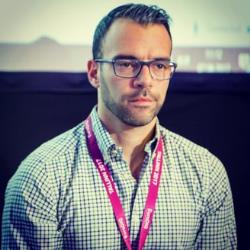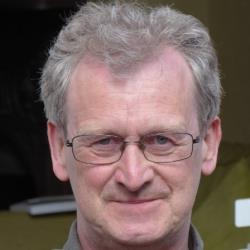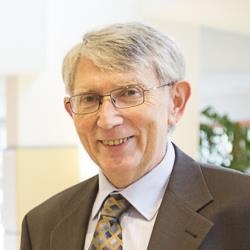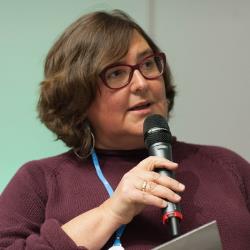Enhanced Cooperation in the Digital Age: From Concept to Commitment at WSIS+20
UN DESA
Session 400
Thursday, 10 July 2025
10:00–10:45 (UTC+02:00)
Physical (on-site) and Virtual (remote) participation
Room G, Palexpo
Interactive Action Line Facilitation Meeting
1 Document
Session Description (45 minutes):
Twenty years after the concept of 'enhanced cooperation' was introduced at the World Summit on the Information Society (WSIS) in Tunis in 2005, it continues to be recognized as central to advancing global discussions on issues related to the development of ICTs. This session aims to bring stakeholders together to explore how enhanced cooperation—now broadly understood as inclusive, transparent, and effective collaboration among stakeholders—can be meaningfully advanced through the WSIS+20 review process. Participants are invited to contribute ideas on how this long-standing goal has been, or can be, translated into practical implementation within the WSIS framework.
Guiding Questions:
- What does “enhanced cooperation” mean today in a rapidly evolving digital landscape, and how should this be reflected in the WSIS+20 outcome?
- How do existing mechanisms—such as forums, partnerships, or policy platforms—facilitate enhanced cooperation in practice, and where are the gaps or opportunities for improvement in the WSIS+20 process?
- How can the WSIS+20 review process foster a shared understanding of enhanced cooperation among diverse stakeholders?
Panellists

Dr. Konstantinos Komaitis
resident senior fellow
Digital Forensic Research Lab at the Atlantic Council
Moderator

Dr. David Souter
Managing Director
ICT Development Associates Limited

Dr. Peter Major
Chair
UN Commission on Science and Technology for Development

Dr. Jimson Olufuye
Principal Consultant/ Founder & Chair
AfICTA Advisory Council (Nigeria)

Ms. Anriette Esterhuysen
Senior Advisor on Global and Regional Internet Governance
Association for Progressive Communications
Topics
5G Technology
Artificial Intelligence
Big Data
Blockchain
Capacity Building
Cloud Computing
Cultural Diversity
Cybersecurity
Digital Divide
Digital Economy
Digital Inclusion
Digital Skills
Digital Transformation
Education
Emerging Technologies
Environment
Ethics
Global Digital Compact (GDC)
Health
Human Rights
Infrastructure
Machine Learning
Media
Smart Cities
WSIS+20 Review
WSIS Action Lines
-
 C1. The role of governments and all stakeholders in the promotion of ICTs for development
C1. The role of governments and all stakeholders in the promotion of ICTs for development
-
 C4. Capacity building
C4. Capacity building
-
 C5. Building confidence and security in use of ICTs
C5. Building confidence and security in use of ICTs
-
 C9. Media
C9. Media
-
 C11. International and regional cooperation
C11. International and regional cooperation
Sustainable Development Goals
-
 Goal 1: End poverty in all its forms everywhere
Goal 1: End poverty in all its forms everywhere
-
 Goal 8: Promote inclusive and sustainable economic growth, employment and decent work for all
Goal 8: Promote inclusive and sustainable economic growth, employment and decent work for all
-
 Goal 9: Build resilient infrastructure, promote sustainable industrialization and foster innovation
Goal 9: Build resilient infrastructure, promote sustainable industrialization and foster innovation
-
 Goal 10: Reduce inequality within and among countries
Goal 10: Reduce inequality within and among countries
-
 Goal 16: Promote just, peaceful and inclusive societies
Goal 16: Promote just, peaceful and inclusive societies
-
 Goal 17: Revitalize the global partnership for sustainable development
Goal 17: Revitalize the global partnership for sustainable development
GDC Objectives
- Objective 1: Close all digital divides and accelerate progress across the Sustainable Development Goals
- Objective 2: Expand inclusion in and benefits from the digital economy for all
- Objective 3: Foster an inclusive, open, safe and secure digital space that respects, protects and promotes human rights
- Objective 4: Advance responsible, equitable and interoperable data governance approaches
- Objective 5: Enhance international governance of artificial intelligence for the benefit of humanity